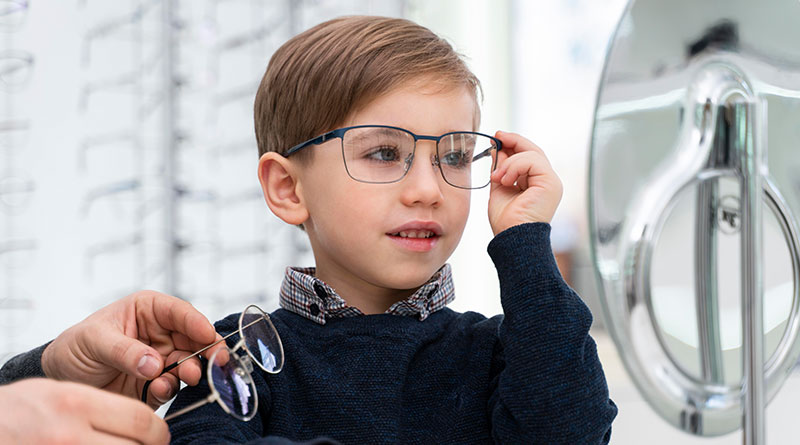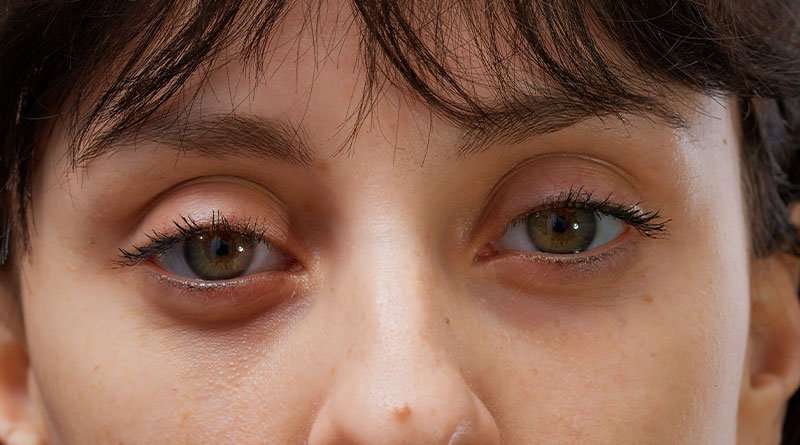In our fast-paced, modern world, we often find ourselves glued to screens, whether it’s for work or leisure. This prolonged screen time, coupled with other environmental factors, has led to a significant increase in vision-related issues.
Poor eyesight can affect your daily life and overall well-being. While eyeglasses and contact lenses offer a quick fix, there are natural ways to improve eyesight and enhance your vision for the long term.
In this article, we will explore some effective tips for sharper vision, focusing on natural methods that can help you improve eyesight without resorting to surgery or corrective lenses.
1. Nourish Your Eyes with a Healthy Diet
A nutritious diet is crucial for maintaining and improving eyesight. The foods you consume can have a profound impact on your eye health. Incorporating the following nutrients into your diet can help improve eyesight:
a. Vitamin A: Known for its essential role in maintaining good vision, vitamin A can be found in foods like carrots, sweet potatoes, and spinach.
b. Omega-3 Fatty Acids: Fish like salmon and mackerel are rich in omega-3 fatty acids, which help protect against dry eyes and age-related macular degeneration.
c. Lutein and Zeaxanthin: These antioxidants are found in leafy greens such as kale, spinach, and broccoli and can protect the eyes from harmful light.
d. Zinc: Zinc supports overall eye health and can be found in sources like oysters, lean red meat, and poultry.
e. Vitamin C: This antioxidant found in citrus fruits, strawberries, and bell peppers helps reduce the risk of cataracts and macular degeneration.
2. Practice Eye Exercises
Just as regular physical exercise benefits your body, eye exercises can be beneficial for your eyes. These exercises can help strengthen eye muscles, improve focus, and reduce eye strain. Here are a few simple exercises to incorporate into your daily routine to improve eyesight:
a. Palming: Rub your hands together to generate heat, then gently cup your palms over your closed eyes without applying pressure. Take a few deep breaths and relax. This exercise can help relieve eye strain.
b. Blinking: Blinking rapidly for a few seconds can help lubricate your eyes and reduce dryness. Repeat this exercise periodically, especially during prolonged screen time.
c. Focus Shifting: Choose an object at a distance, then another object up close. Shift your focus between the two objects for a few minutes. This exercise can improve your eye’s flexibility.
3. Proper Lighting and Screen Habits
Excessive exposure to screens and poor lighting conditions can strain your eyes. To improve eyesight and reduce eye strain, follow these tips:
a. Adjust Screen Brightness: Ensure your computer, smartphone, and other devices have the right brightness settings. A screen that is too bright or too dim can lead to eye discomfort.
b. Use the 20-20-20 Rule: Every 20 minutes, take a 20-second break and focus on an object at least 20 feet away. This aids in relaxing your eye muscles and alleviating eye strain.
c. Proper Lighting: Ensure your workspace is well-lit. Avoid glare on your screen by positioning it away from direct light sources and using an anti-glare screen protector if necessary.
4. Stay Hydrated
Dehydration can affect your eyes and lead to dryness and discomfort. To maintain optimal eye health and improve eyesight, make sure you stay well-hydrated by drinking enough water throughout the day. Reduce your intake of dehydrating beverages such as alcohol and caffeinated drinks.
5. Get Adequate Sleep
Quality sleep is essential for overall health and eye health. While you sleep, your eyes undergo a process of repair and rejuvenation. Lack of sleep can lead to eye strain, dry eyes, and blurred vision. Aim for 7-9 hours of restful sleep each night to ensure your eyes have ample time to recover.
6. Reduce Eye Strain
Excessive eye strain is a common cause of deteriorating eyesight. To reduce strain, take the following steps:
a. Maintain Proper Posture: Sit at a comfortable distance from your screen, with your monitor at eye level. This ensures your eyes aren’t strained by looking up or down.
b. Use Blue Light Filters: Consider using blue light filters or blue light-blocking glasses to reduce the impact of digital devices on your eyes.
c. Regular Eye Checkups: Visit an eye care professional for regular checkups to detect any issues early and receive proper guidance on how to improve eyesight.
7. Shield Your Eyes from the Dangers of Ultraviolet (UV) Rays
Exposure to ultraviolet (UV) rays can damage your eyes and increase the risk of cataracts, macular degeneration, and other eye problems. To protect your eyes from UV radiation:
a. Wear Sunglasses: Invest in quality sunglasses that block 100% of both UVA and UVB rays. These sunglasses should provide ample coverage to shield your eyes from the sun.
b. Use Wide-Brimmed Hats: When spending time outdoors on sunny days, wearing a wide-brimmed hat can provide an additional layer of protection by reducing direct sunlight on your eyes.
c. Avoid Peak Sun Hours: If possible, avoid prolonged outdoor activities during peak sun hours, typically between 10 a.m. and 4 p.m.
8. Manage Stress and Relaxation Techniques
Stress and tension can have a significant impact on your overall health, including your eyes. Chronic stress can contribute to eye strain and negatively affect your vision. To manage stress and improve eyesight:
a. Practice Relaxation Techniques: Engage in relaxation techniques such as deep breathing, meditation, and yoga to reduce stress levels and promote relaxation. These practices can help your eyes relax and reduce strain.
b. Take Breaks: Ensure you take regular breaks during work or other activities that require prolonged concentration. These breaks provide your eyes with the necessary intervals for relaxation and rejuvenation.
c. Get Adequate Rest: As mentioned earlier, quality sleep is crucial for maintaining good eye health. Adequate rest can help alleviate stress and contribute to sharper vision.
Conclusion
Your eyes are precious, and it’s essential to take proactive steps to maintain and improve eyesight. By incorporating these natural methods into your daily routine, you can promote better eye health and enjoy sharper vision.
Remember that it’s essential to be consistent in your efforts, as long-term benefits often result from continuous care and attention.
Start making these changes today, and you’ll be well on your way to achieving and maintaining optimal eye health.
Sahil Sachdeva is the Founder of curemedoc.com and a Digital Marketing professional with 6+ years of experience. If you need help in Content writing and want to increase your website ranking, connect with him, as he has some premium websites where you can share blogs with DoFollow links and increase your website’s ranking on Google.



